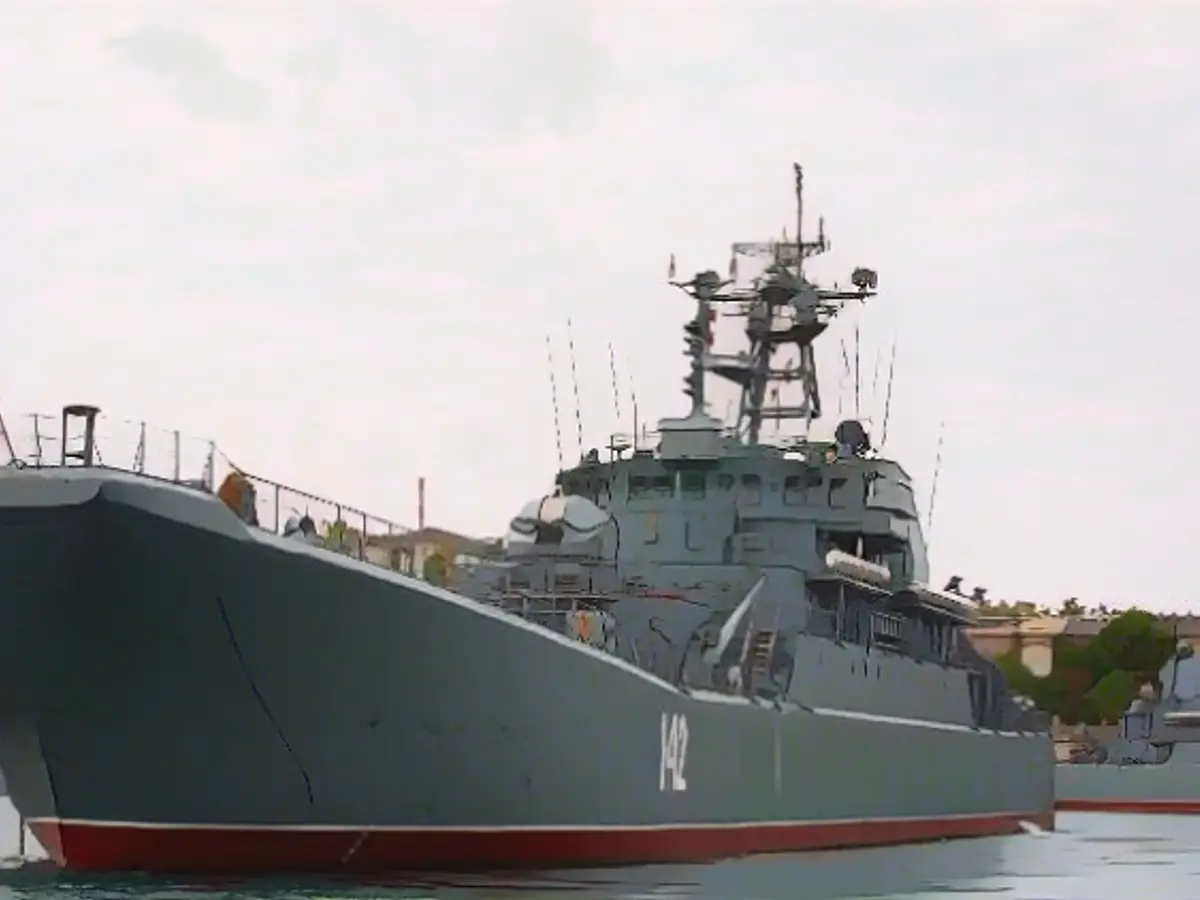Fighting the Sea Tide in Ukraine's Favor
The Black Sea Battle's Evolution
For months, the war in Ukraine has remained a stalemate. Yet, in the Black Sea, Kiev's troops are scoring notable victories. The Russians are pulling back their warships and sticking to long-range attacks. Ukraine has regained control of the waters.
On the continent, the odds are stacked against Ukraine. The lack of ammunition and resources makes major territorial gains challenging. Time is slowly shifting in Russia's favor. However, things are not the same at sea. The Black Sea has witnessed a shift in momentum.
A Series of Milestones
The tide changed first with the sinking of the Russian Black Sea Fleet's flagship, Moskva, in April 2022. Two months later, Ukraine celebrated another success when Russian forces evacuated Snake Island. A strategic location in the Black Sea, 35 kilometers off Ukraine's coast, was finally under Ukraine's control.
In September, Ukrainian forces attacked Russian submarines in the port of Sevastopol, annexed by Russia, with British cruise missiles. The following month, Ukraine launched another successful assault against a Russian military base with cutting-edge drones. Even the Kerch Bridge, which links Crimea and Russia, was targeted with drone attacks in July.
On August 1, Ukraine dealt another significant blow by attacking a Russian tanker carrying fuel to Crimea. With a precise drone strike, an eight-meter-wide hole was made in the side of the tanker.
Escalating Tactics
In mid-September, Ukraine hit the military base in Sevastopol with cruise missiles and drones. In response, the headquarters of the Black Sea Fleet in Crimea was bombed again. The tactical-strategic value of these attacks was not lost on Cedric Leighton, a former US Air Force colonel, who analyzed the situation on CNN:
This is very impressive from a tactical-strategic point of view, because the Russians control all operations in the Black Sea from their Crimean headquarters. They also control what happens on the southern front from here.
The Russians Retreat
The Russians have relocated most of their Black Sea fleet from Crimea, as reported by the Wall Street Journal and other sources. Satellite images indicate the movement of several submarines and ships to other Black Sea ports.
Part of the Russian Crimean fleet was even found to have been moved only a few kilometers away from Sevastopol to a so-called quarantine bay. However, the majority of the fleet has disappeared, leaving a smaller presence in the region.
ukraine's Maritime Aggressiveness
Despite the ongoing conflict, Ukraine's forces have demonstrated remarkable resilience and agility in the Black Sea. They have utilized innovative tactics, such as drone and missile strikes, to neutralize Russian naval assets and disrupt supply lines.
Ukraine's success can be attributed to:
- Adaptability: Ukraine has shown an ability to adapt to Russian tactics, such as shooting down Mi-8 helicopters using missiles fired from Magura V5 naval drones[1].
- Innovation: Ukraine's use of drones, cruise missiles, and its anti-access/area denial strategy has proven successful in repelling Russian attacks[1][2].
The Black Sea's Strategic Importance
The Black Sea is crucial for Ukraine for various reasons. Kiev aims to lift the naval blockade in the southwest, preventing Putin's troops from receiving supplies by sea. Economically, the Black Sea serves as Ukraine's primary trade route, especially for exporting grains.
The New Grain Corridor
In September, a new grain corridor was established as an alternative to the UN Black Sea Grain Initiative. The route runs along the southwestern coast of Ukraine, then past Romania, and through Turkish territorial waters to the Bosporus. This new corridor has made the Black Sea relatively safer for Ukrainian shipping, fulfilling Ukraine's goal of limiting supply lines for Putin's troops.
Ongoing Threats
Although Ukraine has temporarily regained control of the Black Sea, Russia's long-range missiles still pose a threat. In November, a Liberian cargo ship was hit by a Russian missile, highlighting the precariousness of maritime security in the region[1].
The War at Sea
Ukraine has managed to repel Russian attacks in the Black Sea, scoring notable victories. Despite withdrawing most of its fleet, Russia still poses a significant threat with its long-range missiles. Nonetheless, the situation in the Black Sea remains favorable for Ukraine as compared to the ongoing land conflict.
- Using innovative tactics, such as drones and missile strikes, Ukraine's forces have successfully repelled Russian attacks in the Black Sea.
- The new grain corridor has made the Black Sea relatively safer for Ukraine, allowing the export of grains while hurting Russian supply lines.
- Despite Ukraine's success, the Black Sea remains a highly contested region with ongoing threats from Russian forces and their long-range missiles.








